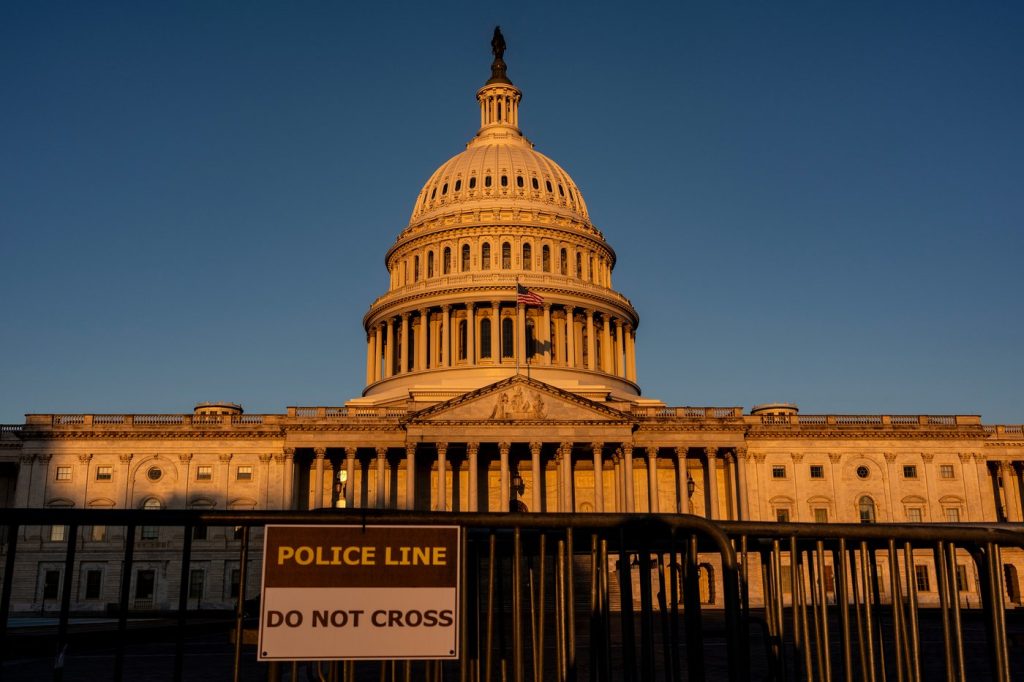WASHINGTON (AP) – As the U.S. government shutdown continues, Democrats are urging for an extension of healthcare subsidies, viewing health care as a pivotal issue that resonates with a majority of Americans. The ongoing standoff in Congress is complicated by various interests within both parties, with the negotiations expected to be neither easy nor quick.
Some Republicans express support for extending the enhanced subsidies, initially implemented in 2021 due to the COVID-19 pandemic. These subsidies have enabled millions to afford insurance through the Affordable Care Act (ACA) marketplaces. However, a significant number of GOP lawmakers oppose this extension, viewing it as an opportunity to cut back on the ACA altogether.
Texas Rep. Chip Roy, a Republican, emphasized the need for his party to seize the moment and not shy away from the issue in a recent letter published in The Wall Street Journal. He remarked, “The jig is up, the pandemic is over, and my colleagues shouldn’t blink in any other direction,” showcasing the party's approach toward health care reforms.
Despite consistent efforts from Republicans to dismantle the Affordable Care Act since its introduction 15 years ago, they have struggled to achieve substantial changes. Currently, a record 24 million individuals are enrolled in ACA coverage, partly due to the financial support these subsidies provide. With the government shutdown entering its seventh day, Republican leaders, alongside former President Donald Trump, find themselves in a challenging position as they navigate this health care debate.
Trump expressed willingness to work with Democrats on health care reform but insisted that the government must reopen first. Senate Majority Leader John Thune, R-S.D., indicated that some Republicans are open to extending subsidies with necessary reforms, but he has made it clear that no negotiations would occur until the government is operational again. Thune’s stance implies the possibility of collaboration, contingent on the White House's involvement.
Many GOP senators, however, argue that systemic overhaul of the ACA is the only acceptable route forward. Florida Sen. Rick Scott stated, “The whole problem with all of this is Obamacare,” reflecting a unified viewpoint among House Republicans, including House Speaker Mike Johnson, who has been noncommittal regarding negotiations. Johnson remarked, “Obamacare is not working; we’re trying to fix it,” emphasizing the general Republican discontent with the ACA.
On the other hand, Democrats perceive public sentiment as being in their favor, asserting that Trump and Republicans will eventually have to engage in negotiations as affected citizens receive notifications about increasing insurance rates, many of whom reside in Republican areas. Senate Leader Chuck Schumer pointed out that polls suggest Americans overwhelmingly support finding solutions to the health care crisis, casting blame on Republicans for the ongoing government shutdown.
In a bid to resolve the deadlock, some bipartisan discussions are taking place among rank-and-file senators from both parties. Senator Mike Rounds of South Dakota has proposed extending the subsidies for a year before phasing them out, while Senate Appropriations Committee Chairwoman Susan Collins advocates for advancing a set of bipartisan spending bills alongside commitments to address the health care situation. This ongoing dialogue, however, remains precarious, with Democrats demanding more solid commitments and Republicans seeking deeper reforms.
Among Republicans, a few express readiness to consider extending the subsidies as constituents brace for rising costs. Missouri Senator Josh Hawley noted the urgency of the matter, advocating for Congress to tackle the issue before the open enrollment period begins on November 1. Additionally, Representative Marjorie Taylor Greene from Georgia indicated her willingness to support an extension despite her usual opposition to the ACA, highlighting the dilemma many Republicans face regarding voter impact in their districts.
As discussions unfold, the path forward remains uncertain, with significant divisions persisting between the parties, particularly regarding health care reforms and government reopening. The outcome will depend on continued negotiations and the willingness of both sides to find common ground amidst the ongoing legislative challenges.











